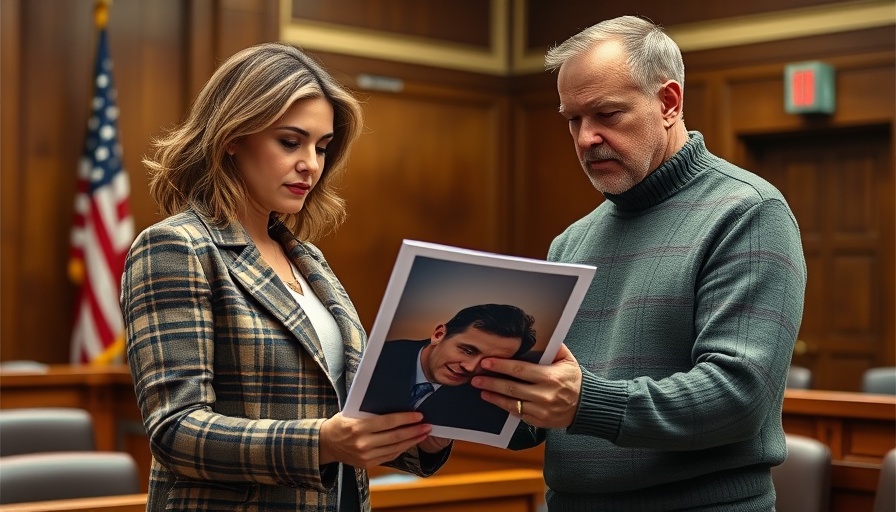
Reflecting on the Menendez Brothers’ Legacy
The Menendez brothers’ case, which has captivated public interest since the early 1990s, continues to spark conversations about crime and punishment. As Lyle and Erik Menendez were recently resentenced, that discourse has now evolved to include a consideration of how societal values have changed over three decades. During their initial trials, the brothers were portrayed as the epitome of villainy; however, today's discussions acknowledge their complex backgrounds and the impact of childhood trauma—a significant shift in the public's understanding of mental health and its implications in criminal cases.
The Shift in Cultural Narratives
In a stark contrast to the 1990s, when sensationalism ruled the narrative, today's discourse is significantly more nuanced. Erik Menendez’s lawyer emphasized this point, declaring, “We have evolved. This is not the ‘90s anymore.” This sentiment reflects a broader cultural reckoning with the issues of mental health, trauma, and their roles in legal adjudications. The change might also be influenced by modern platforms like TikTok, where movements about mental health awareness gain traction and challenge traditional media narratives.
The 1990s Context: A Different America
The 1990s were defined by a reliance on sensationalized media narratives and a lack of understanding around psychological welfare. The Menendez trial was marked by a media frenzy that both vilified and voyeuristically consumed the familial tragedy. Today, as we reflect on this case, we also consider the underlying societal conditions of that era—an America grappling with rising crime rates, which influenced public perception and policy. Could the Menendez brothers’ fate have been different had they been judged in today’s climate, where mental health issues are openly discussed?
Lessons Learned from the Menendez Case
Examining the Menendez brothers’ experience reveals critical lessons about our judicial system's treatment of mental health. As public awareness surrounding mental health increases, it enhances dialogue around justice, compassion, and rehabilitation versus punishment. While Lyle and Erik have been incarcerated for over three decades, their story highlights the need for a judicial reevaluation that aligns with contemporary understandings of psychological trauma.
Public Sentiment and the Power of Social Media
Social media plays a transformative role in shaping public sentiment regarding the Menendez brothers. Beyond traditional media, platforms like Instagram and TikTok have democratized the discourse on crime and punishment, allowing advocacy and awareness to flourish beyond the courts. A groundswell of support generated online might actually contribute to a more compassionate understanding of the brothers’ actions and the psychological factors that propelled their tragic choices.
Future Implications
Ultimately, the fate of the Menendez brothers poses questions about justice and its application in modern America. With discussions around reintegration for previously incarcerated individuals gaining attention, there is potential to reshape how society perceives crime and the possibility of rehabilitation. As discussions evolve, will we see a legal landscape that accommodates explanations of mental health in jury deliberations? This case serves as a prelude to broader social changes in our understanding of crime, punishment, and the human experience.
As we navigate a society grappling with concepts of justice and reform, the Menendez brothers’ story serves as an invaluable lesson on empathy, mental health, and societal change. As discussions about their case continue to unfold, there is an opportunity for more profound understandings of justice and healing.
 Add Element
Add Element  Add Row
Add Row 



 Add Row
Add Row  Add
Add 


Write A Comment